9 Life Lessons Learned From Traveling 9 Months
9 Lessons Learned From Traveling 9 Months
In September 2017, I left Chicago to begin a nine month (mostly) solo journey to Asia and Oceania. After working for over a year in a job that made me feel lifeless, I wanted to challenge myself in new ways and experience life in different parts of the world.
My journey took me to Japan, Singapore, Malaysia, Thailand (twice), Indonesia, Taiwan, China, The Philippines, Vietnam, Laos, Hong Kong, New Zealand, and Hawaii.
I never could have expected what I’d discover about the world and myself.
After a month of living back home in Chicago, I’ve spent a lot of time reflecting and trying to understand how this journey has and continues to affect me.
I’m still working on making sense of the whole trip and my path forward…but, for now, here are nine life lessons traveling for nine months taught me.
1. Any Lifestyle Can Become Normal
“How did you live out of a suitcase for nine months? How did you not get tired of sharing rooms with different people every night?”
I’ve been asked these two questions a lot and I never really know how to answer. I knew (to some extent) what I was getting myself into, accepted the situation, and adjusted.
Moving locations every few days, constantly having new friends move in and out of your life, and adapting to different cultures becomes your lifestyle. After a month or two, this seems normal and you don’t really think about how to deal with it; you just do.
You get used to having seemingly unlimited options at your disposal and going on adventures every week that people dream of doing once in their life.
This doesn’t mean your adventures get boring or stale, but they do lose a little of the grandiose and exotic appeal since you’re more accustomed to it.
From home, imagining the backpacker lifestyle can seem exhausting, scary, and unstable. While these are occasionally true, it’s just a different part of your life you learn how to adapt to.
Whether you are in a corporate job for 20 years, a professional athlete on tour, stay at home dad, or vagabond traveling the world, every lifestyle has its pros and cons that become a normal part of life for you.
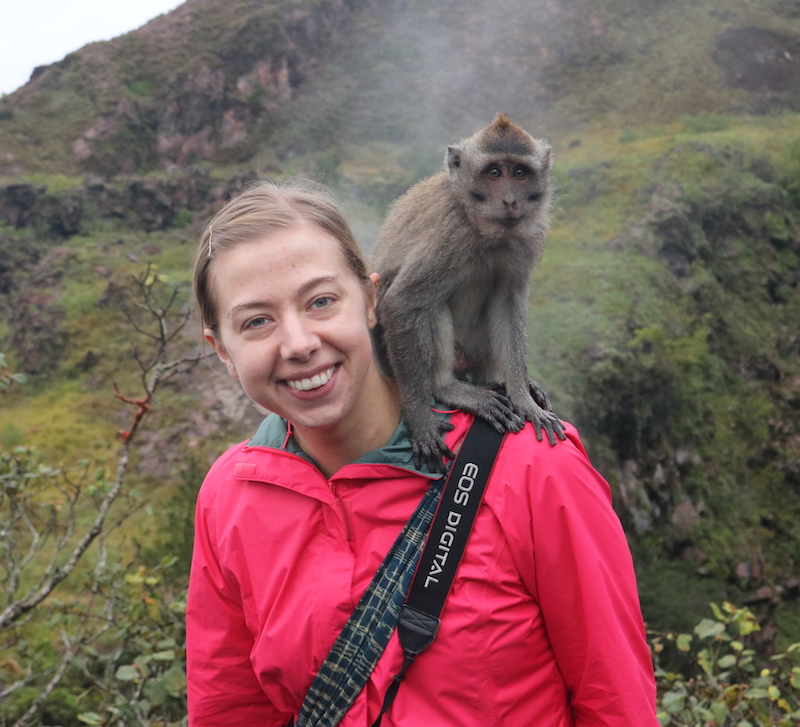
2. For Each Place You Visit, Ask, “What Can I Do Here That I Can’t Do Anywhere Else?”
This one question helped me find more unique adventures and experiences in my nine months than any other question. Asking it helps add variety into your travels and is a great filter for making decisions between your options.
Sometimes the answer will be something crazy like bungee jumping in Queenstown, New Zealand. Or, a unique cultural experience like a meditation retreat in Thailand.
Other times it's going to a local Saturday market in Laos or trying weird foods, such as worm in the Philippines…
Other times you have to search hard for an answer.
Some days when passing through a random, tiny town for a night, the answer was to go out and take pictures of the locals.
The answer was often talking with the people around you, who you would likely never see again.
No matter where you are I guarantee you can find something unique that you can’t do anywhere else.
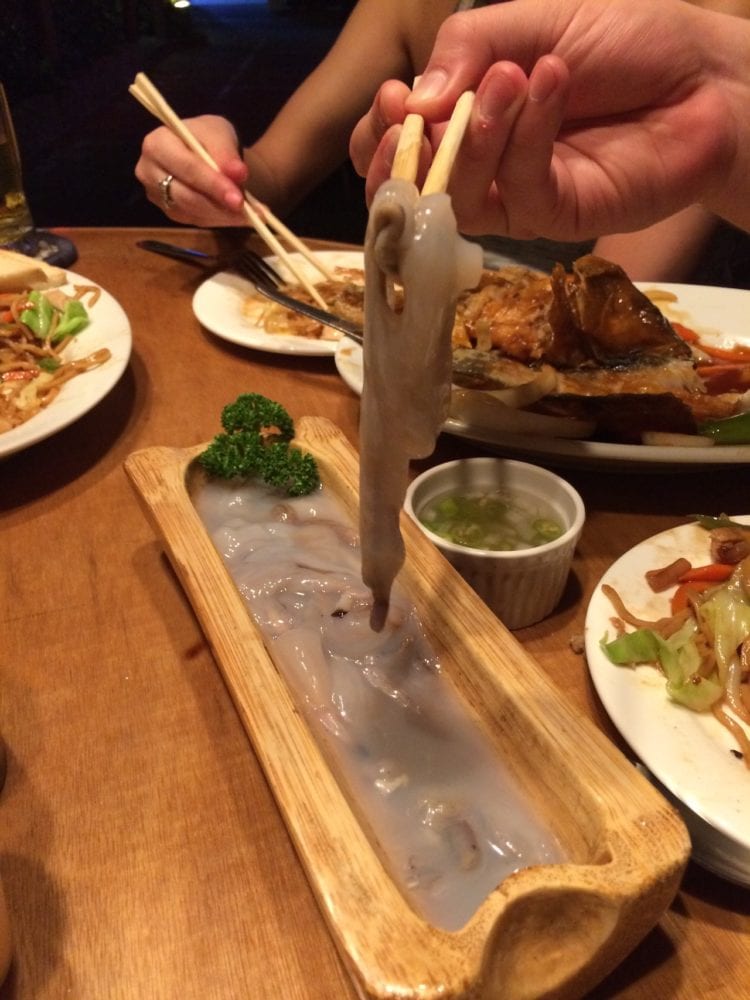
3. Fill Your Idle Time With Activities that Allow You to Learn and Grow
30 minute bus rides. 12 hour flights. 36 hour train rides.
No matter the duration and method of transportation, traveling gives you a lot of idle time (especially as a passenger).
What you do with this time is crucial for your development and growth as a person. Yes, sometimes you just need to take a nap or stare out the window for a few hours, but if you did this every time you have a few hours over nine months, your mind would completely decay.
Ryan Holiday, in his book Ego is the Enemy, talks about the difference between how we use our time:
“There are two types of time in our lives: dead time, when people are passive and waiting, and alive time, when people are learning and acting and utilizing every second.”

How you choose to spend your idle time while traveling will have a huge impact on who you are when you return.
You could use your time to:
- Work on a project like a blog or podcast.
- Learn photography or editing skills.
- Grab a pen and journal and practice writing (no battery life or WiFi needed!).
- Read a book instead of watching a movie.
No matter your interests, use the frequent downtime you have as alive time to improve, learn new things and catalyze growth.
4. Good and Bad People Exist Everywhere (Which Will You Be?)
No matter where you go in the world you meet delightful and friendly people. You also meet true assholes who hate everyone and everything.
Some people will help you no matter the situation, while others will try to make it worse.
Some people genuinely want to do good, while others genuinely want to cause suffering and pain. I don’t know why this is, but I think it shows the reality of life and how the spectrum of human experience is so diverse.
You can’t always control which type of person you meet, but you can control how you treat people, which usually affects how they treat you.
In other words, you attract the energy you put out.

Let’s say that everything is going wrong for you today and you’re in a terrible mood. Because of this, you are rude to people, short with your responses and basically trying to make other people feel your pain.
How will people respond to you? Probably by being rude and disrespectful.
Thus, your shitty mood continues because people are treating you shitty, and you get stuck in a poisonous “everyone’s an asshole” loop.
Let’s look at the other side.
You always have a big smile on your face. You go around being enthusiastic, friendly, kind, and respectful. People are more likely to respond to you in a friendly and respectful way.
Even if they are in a bad mood, it’s a lot harder to be an asshole to someone cheerful than to the person in the first scenario.
No matter where in the world you are, you can find good and bad people, but everything starts with you.
5. Understand and Expect Things Will Go Wrong
Leaving for the Bangkok airport at 5pm on a Wednesday, I failed to think about rush hour traffic. Whoops…now I’ve missed my flight to Bali, am out $100, and have an extra 11 hours to kill in the Bangkok airport.
Definitely didn't expect that to happen.
Two of my friends lost their passports within the first 30 minutes of meeting me in China for a 10 day international trip.
DEFINITELY didn’t expect that to happen!
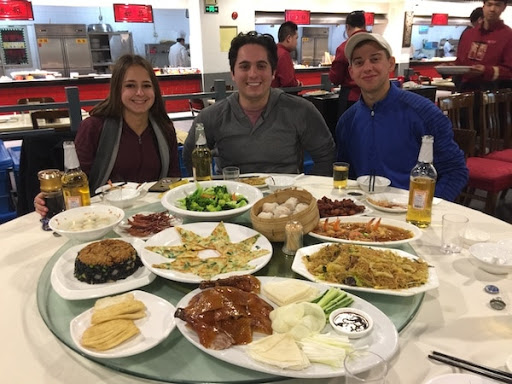
In life, and especially in traveling, so much is outside of our control. We simply cannot expect everything to work out perfectly or ignorantly pretend it will.
Missed flights, lost or stolen passports, buses breaking down in the middle of the night, and hundreds of other unanticipated things happen.
Obviously we don’t wish for any to this. Understanding and expecting that it will occur at some point helps cushion the blow, lets us look at the situation objectively and properly respond.
It also helps you safeguard against certain scenarios, like making copies of your passport, credit cards, and other important information in case they get stolen.
It’s not about being pessimistic or creating a self-fulfilling prophecy for misfortune.
Understand and expect things to go wrong so you can prepare for difficulty, equip yourself to better respond, or avoid the situation altogether.
6. Go First, Smile, and Be Friendly
Meeting new people and starting conversations with strangers from different cultures is definitely intimidating.
But, what’s the point of traveling if you aren’t willing to step out of your comfort zone and have crazy conversations with strangers or get close to people, even though you may not see them again?
How do you do this if you aren’t a natural-born talker or don't feel social?
Answer: Adopt the “Go First” mindset.
Decide that YOU will take charge and start the conversation, game, activity, or whatever it may be.
Gabby Reece, a professional volleyball player (among other things), featured in Tools of Titans by Tim Ferriss explains what going first means:
“I always say that I’ll go first…That means if I’m checking out at the store, I’ll say hello first. If I’m coming across somebody and make eye contact, I’ll smile first…Be first, because - not all times, but most times - it comes in your favor. The response is pretty amazing…People are ready [to smile, say hello, talk, etc.], but you have to go first, because now we’re being trained in this world [to opt out] - nobody’s going first anymore.”

This couldn’t be more true for traveling.
Many times in the common area of a hostel, I found people sitting by themselves looking at their phone not talking to anyone. Maybe they were doing research or catching up with friends, but more likely they were aimlessly scrolling through Instagram for the eighth time that hour.
Do you think everyone in a hostel traveled as far as they did to sit by themselves and look of pictures of people back home? No!
They are ready to talk or play a game, but don’t know how or don’t feel comfortable taking initiative. This is why YOU need to be the one to go first.
The three easiest (and most common) questions you can ask to start a conversation are:
- When did you get to [your location]?
- Do you have any recommendations on what to do? Or, what are you planning on doing here?
- Where are you from?
- Bonus (especially if there’s a lot of people): Anyone want to play a card game?
If you smile and are open to a friendly conversation, you are almost always guaranteed to get someone talking and make a new friend. Don’t use your phone as a crutch to avoid conversation (which Theo Moon talks about in his podcast).
Ask the first question to your cab driver. Smile at locals or other travelers in passing. Whatever the situation, go first and watch as the world opens up to you.
7. Be Generous and Pass It Forward
My trip would have been 10x more difficult and expensive if it weren’t for the generosity and help from friends, locals, and other travelers.
I was constantly surprised by how friendly and generous people are in the travel community.
Giving away warm clothes to people hiking a snowy mountain. Taking extra time to help plan your itinerary. Offering a meal they cooked in the kitchen hostel. I saw acts of kindness everyday and learned a lot about being part of a global community.
Along your travels, do what you can to help other people out and I guarantee it will come back around when you need it most.
Right before going on an extensive tour of China in late winter, my cousin’s friend Karl gave me one of his old winter jackets to use. Without this jacket, I would have had to spend a hefty amount to buy my own or become one with winter like Jack in The Shining.

And more importantly, when someone does something generous for you, pass it along to another person in need. Karl, I hope you see someone wearing the puffy blue jacket someday in Wenzhou!
If you want to hear another incredible example about traveler generosity, go to 1:52:20 in Jason Patrick Irish’s podcast episode to hear how travelers helped fund the rest of his trip after being robbed.
8. Balance is Key
How do you find or create stability in an extremely unstable lifestyle?
How do you see as much as you can of a new place in limited time without burning out?
Can you socialize and have fun with other travelers without partying until 3am every night?
The answer to these questions is finding a balance between the two extremes.
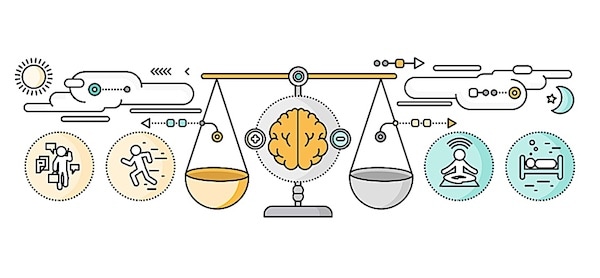
If I went out and partied every night for nine months I would probably be dead right now. If I never went out once, but stayed in the hostel by myself and avoided all social interaction, I would be a hermit who forgot how to talk to people and lived in the sewers of Shanghai.
What if I went full-speed 100% of the time to see everything and never took a break to relax? I would have come home early from exhaustion. If I barely did anything unique to the location, then I should have never left home in the first place.
The goal is to experiment and find a balance that feels physically/mentally healthy, is consistent with what’s most important to you, and allows you to not resent yourself.
Once you start examining balance in different aspects of your life, whether at home or on the road, you will see how important it is to find the balance right for you and how dangerous being on either side of the extreme is.
9. People Make the Place
About halfway through my trip, I noticed a trend when talking with other travelers about favorite countries or experiences.
Every time someone brought up one of their favorite places, they mentioned a person or group they were with.
“Pai, Thailand was incredible because I explored the city on mopeds with two awesome people from my hostel, and still talk to them today!”
I thought back to some of the moments that stood out in my mind and realized they stood out mostly because of who I was with.
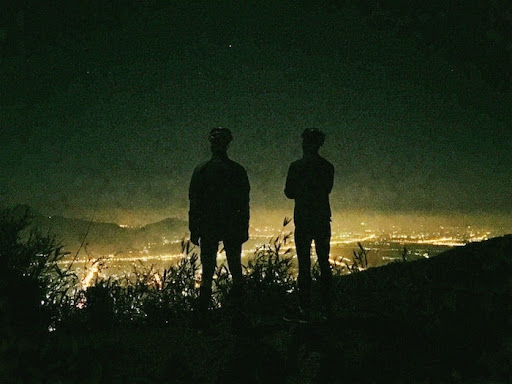
It’s often not the exotic or wild destinations we remember best, but the places where you spent time with the people you genuinely connected with and cared about.
The people you meet along the way are truly the most special part of traveling. If you get the perfect mix of an incredible location with an incredible group of people, you experience a whole new level of joy.
Don’t be afraid to be yourself around strangers and form meaningful relationships, even if you’re only together a few hours or days. It makes life a lot more fun wherever you are, especially during long travel days or when you’re stuck inside from rain.
Wherever you travel in life, the people you're with make the place.
Conclusion
Whether you are embarking on a trip of your own or are on your fifth year of backpacking, you always have something new to learn.
Life on the road starts to feel normal and you discover you actually need to find ways to break from the motions of travel. Things go wrong, but you expect it and are prepared to handle the situation properly. By doing your best to be part of the good and generous traveler community, help arrives when you need it most.
Pick up new hobbies or interests to fill your idle time so you don’t decay, but develop and grow in a way not available to you before. If you do get bored, make sure to ask, “What can I do here that I can’t do anywhere else?” and listen for the answer.
You meet marvelous people throughout your journey, and whether you spend 10 minutes or 10 days together, they make all the difference. Remember that people are ready to smile or talk, but you need to be the one to go first. Find your balance along the way and enjoy every moment you’re given.
It’s one hell of a ride.















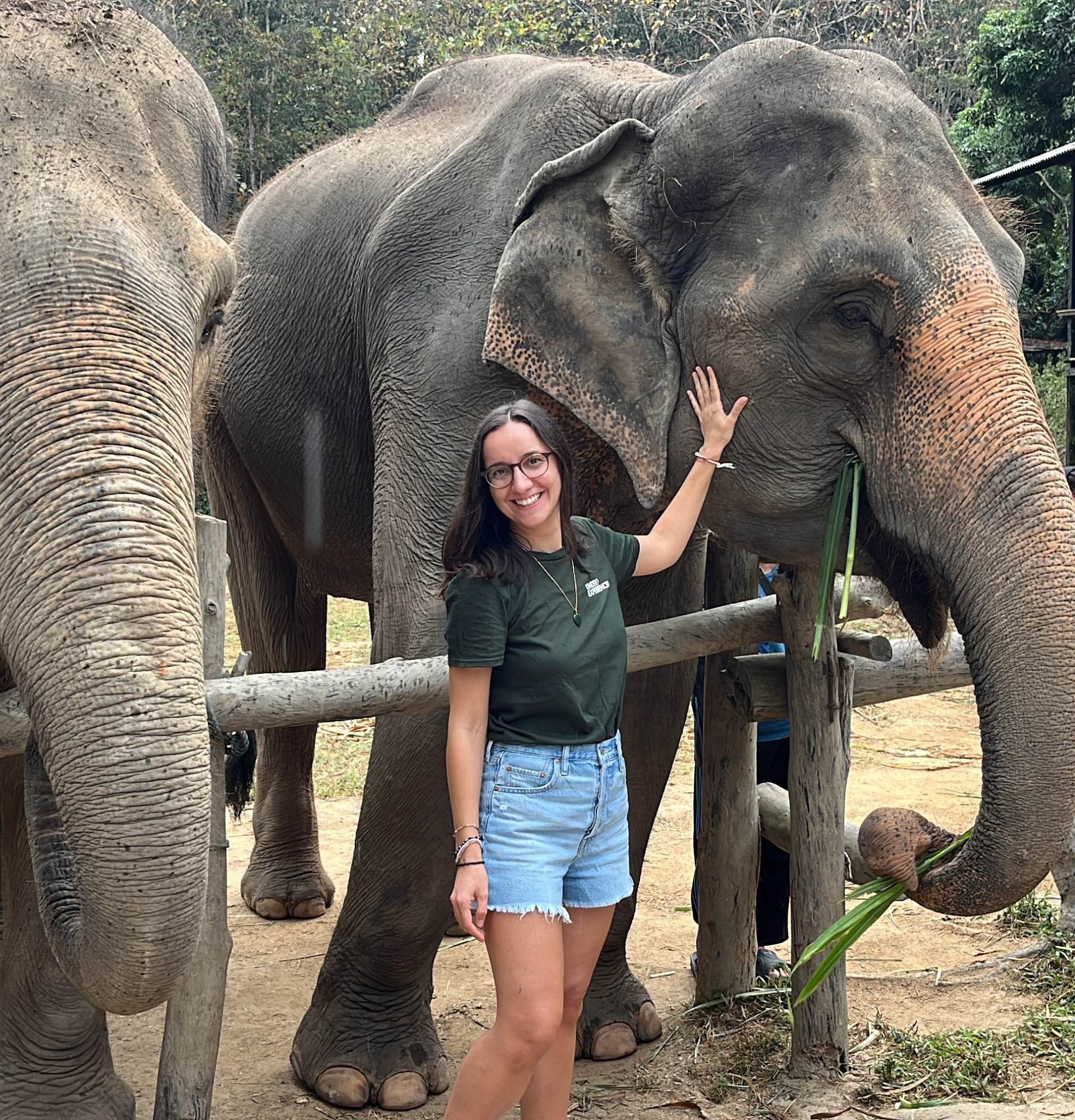

.webp)
.webp)
.webp)





